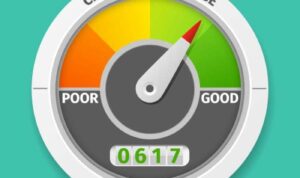Saving accounts are more than just a place to stash your cash – they’re a key tool for financial growth and security. From understanding the different types to maximizing your savings, this guide will walk you through everything you need to know.
Types of Savings Accounts: Saving Accounts

When it comes to saving that cash flow, there are a few different types of savings accounts you can stash your money in. Let’s break it down for you:
High-Yield Savings Accounts
High-yield savings accounts are like the rockstars of the savings account world. They offer a higher interest rate compared to traditional savings accounts, helping your money grow faster. These accounts are usually offered by online banks and have little to no fees.
Money Market Accounts, Saving accounts
Money market accounts are all about that stability. They typically offer higher interest rates than regular savings accounts but require a higher minimum balance. These accounts also come with the ability to write checks or use a debit card, making them a bit more flexible.
Certificates of Deposit (CDs)
CDs are like the long-term commitment of the savings world. You lock in your money for a specific period, ranging from a few months to several years, and in return, you get a fixed interest rate. The longer you commit, the higher the interest rate usually is. Just remember, early withdrawal may come with penalties.
Importance of Saving Accounts
Saving accounts play a crucial role in ensuring financial security and stability for individuals. By setting aside a portion of their income regularly, people can build up their savings and have a safety net in times of need.
Achieving Financial Goals
- Saving for Big Purchases: Having a savings account allows individuals to save up for big-ticket items like a car, a home, or a dream vacation. By setting specific savings goals, people can track their progress and make their dreams a reality.
- Emergency Fund: A savings account serves as the perfect place to keep emergency funds. Whether it’s unexpected medical expenses, car repairs, or sudden job loss, having a financial cushion can help individuals navigate through tough times without going into debt.
Advantages of Emergency Funds
- Easy Access: Savings accounts offer easy access to funds, allowing individuals to withdraw money quickly in case of emergencies. This accessibility ensures that people can cover unexpected expenses without any delay.
- Interest Earnings: While the interest rates on savings accounts may be relatively low, individuals still earn some interest on the money they keep in the account. Over time, these earnings can add up and contribute to the overall growth of their savings.
- Peace of Mind: Knowing that they have an emergency fund in place provides individuals with peace of mind. This sense of financial security can alleviate stress and anxiety, allowing people to focus on their goals and aspirations.
How to Choose a Savings Account

When selecting a savings account, it’s essential to consider various factors that can impact your financial goals and overall banking experience. Factors such as interest rates, fees, minimum balance requirements, and accessibility play a crucial role in determining the best account for your needs.
Interest Rates
When comparing savings accounts, pay close attention to the interest rates offered by different banks. Higher interest rates mean your money will grow faster over time, helping you reach your savings goals more quickly.
Fees
Be sure to inquire about any fees associated with the savings account, such as monthly maintenance fees, overdraft fees, or ATM fees. Choosing an account with minimal fees can help you maximize your savings and avoid unnecessary charges.
Minimum Balance Requirements
Some savings accounts require a minimum balance to be maintained to avoid fees or to earn interest. Consider your financial situation and choose an account with a minimum balance requirement that aligns with your saving habits and goals.
Accessibility
Accessibility is another crucial factor to consider when choosing a savings account. Determine whether the bank has physical branches or if it is an online-only bank. Online banks often offer higher interest rates but may have limited access to in-person customer service.
Comparison: Traditional vs. Online Banks
- Traditional Brick-and-Mortar Banks:
Pros: In-person customer service, easier access to ATMs, established reputation.
Cons: Lower interest rates, higher fees, limited convenience. - Online Banks:
Pros: Higher interest rates, lower fees, convenient online access.
Cons: Limited in-person customer service, fewer physical locations.
Checklist for Choosing a Savings Account
- Evaluate interest rates offered by different banks.
- Consider the fees associated with the account.
- Review minimum balance requirements and choose one that suits your financial situation.
- Determine the accessibility of the bank, whether it is a traditional or online-only institution.
Tips for Maximizing Savings
Saving money is essential for achieving financial goals and building a secure future. Here are some tips to help you maximize your savings in a savings account.
Set Up Automatic Transfers
One effective strategy for saving money is to set up automatic transfers from your checking account to your savings account. By automating your savings, you can ensure that a portion of your income goes directly into savings before you have a chance to spend it.
Budgeting
Creating a budget can help you track your expenses and identify areas where you can cut back to save more money. By setting spending limits and prioritizing your financial goals, you can ensure that you are allocating enough funds to your savings account each month.
Financial Goals
Setting specific and achievable financial goals can motivate you to save more money. Whether you are saving for a down payment on a house, a vacation, or an emergency fund, having clear goals in mind can help you stay focused on building your savings.
Compound Interest
Compound interest is a powerful tool that can help your savings grow over time. By earning interest on both your initial deposit and the interest that accrues, you can watch your savings multiply exponentially. Take advantage of compound interest by keeping your money in a high-yield savings account.
Avoid Common Pitfalls
To maximize your savings, it’s important to avoid common pitfalls that may hinder your progress. Avoid high-interest debt, unnecessary spending, and lifestyle inflation that can eat into your savings. Stay disciplined and stay focused on your financial goals to ensure that your savings continue to grow.





